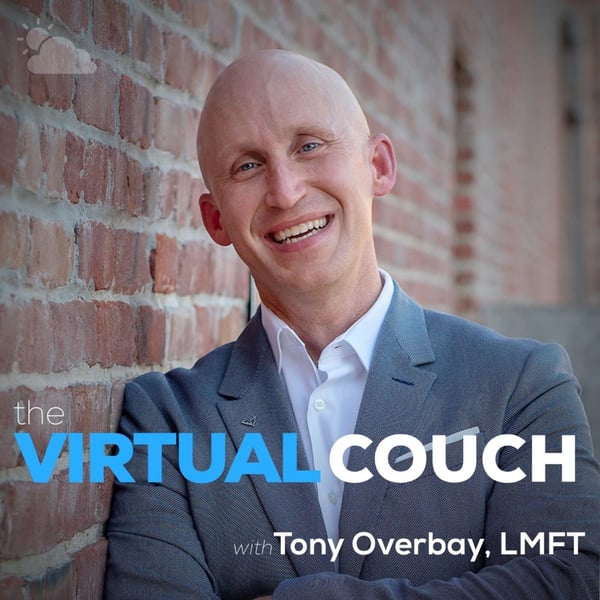From Codependent to Interdependent - Keys To a Thriving Relationship
The Virtual Couch
Tony Overbay LMFT
5 • 643 Ratings
🗓️ 16 February 2021
⏱️ 39 minutes
🧾️ Download transcript
Summary
Transcript
Click on a timestamp to play from that location
| 0:00.0 | One of the most frustrating things for me is a therapist is misinformation, and some of it comes |
| 0:05.1 | from a cute, fun place. It's good, it's well-meaning. Take one of my favorite pop psychology |
| 0:10.0 | myths, for example. It's one I like to challenge whenever I go speak out on the road. It's the old, |
| 0:14.5 | how many days does it take to create a new habit? And this is not a habit change podcast, but bear with me for a second. So what pops into your mind? |
| 0:22.0 | If you're like most people, you'd think 21 days. |
| 0:24.1 | But the truth, according to a 2009 study published in the European Journal of Social Psychology, |
| 0:29.3 | takes anywhere from 18 to 254 days for a person to form a new habit, depending on the habit, |
| 0:34.6 | depending on the person. |
| 0:36.1 | The study also concluded that on average, it takes 66 days for a new behavior to become automatic. |
| 0:42.2 | But again, this is not a podcast about habit change. |
| 0:45.5 | So let me get back on track. |
| 0:47.0 | And my work as a couple's therapist in particular, I run into the word codependency on a regular basis. |
| 0:52.9 | Now, let me just break down the definition of |
| 0:55.2 | codependent. Codependency, the definition, excessive emotional or psychological reliance on a partner |
| 1:02.1 | typically one who requires support on account of an illness or addiction, quote, the tie that |
| 1:07.7 | binds most of us together in this trap called codependency. |
| 1:11.5 | So I've spoken often about codependency, and when codependency goes south, when it turns bad, |
| 1:19.1 | we're talking about self-worth coming from external sources. |
| 1:22.1 | Co-dependent people need external sources or things or other people to give them feelings of |
| 1:26.6 | self-worth. Often following |
| 1:28.0 | destructive parental relationships, abusive past, or self-destructive partners, codependence |
| 1:32.5 | learn to react to others, worry about others, and depend on others to help them feel useful |
... |
Please login to see the full transcript.
Disclaimer: The podcast and artwork embedded on this page are from Tony Overbay LMFT, and are the property of its owner and not affiliated with or endorsed by Tapesearch.
Generated transcripts are the property of Tony Overbay LMFT and are distributed freely under the Fair Use doctrine. Transcripts generated by Tapesearch are not guaranteed to be accurate.
Copyright © Tapesearch 2025.

